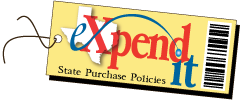Prompt Payment – USAS Instructions
Profiles That Determine Whether Payments Are Subject to the Prompt Payment Law
- Transaction Code Decision Profile (28A)
- The Interest Transaction Code (
INTTC) field determines whether a T-code submitted on a payment transaction is subject to the prompt payment law. - Comptroller Object Profile (D10)
- The Goods/Services (
GOODS/SERV) field determines whether a particular COBJ submitted on a payment transaction is subject to the prompt payment law.
The Interest Object (INT OBJ) field identifies the COBJ that interest will post to.
The defaults established in the D10 profile instruct USAS on whether prompt payment interest is automatically paid if a payment is late:
- These defaults are not meant to be legal advice about whether individual payments are subject to the prompt payment law.
- Not every single payment processed under a specific COBJ will be treated correctly by USAS. USAS cannot properly determine whether every payment is subject to the prompt payment law.
- Agencies must submit a
IC indicatorwhen necessary to correct how USAS treats a payment with respect to the prompt payment law.
- Program Cost Account Profile (26)
- The required Interest Chargeable (
INT CHARGEABLE) field indicates if late payment interest may be charged against the program cost account (PCA).
The default interest PCA (DEFAULT INT PCA) is required if theINT CHARGEABLEfield is marked that no late payment interest may be charged.
Definitions
- Payment
- Money owed to a vendor.
- State agency
-
- A board, commission, department, office or other agency in the executive branch of state government created by the constitution or a statute of this state, including an institution of higher education as defined by Texas Education Code Section 61.003.
- The Legislature or a legislative agency.
- The Supreme Court, the Court of Criminal Appeals, a court of appeals, a state judicial agency or the State Bar of Texas.
